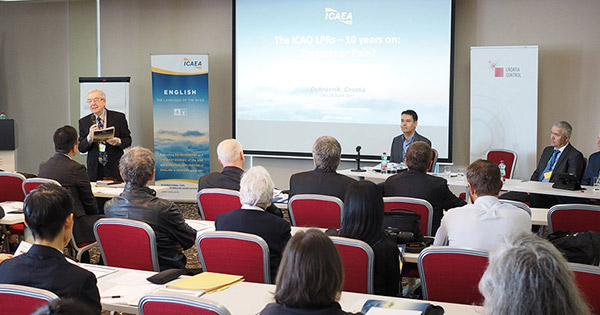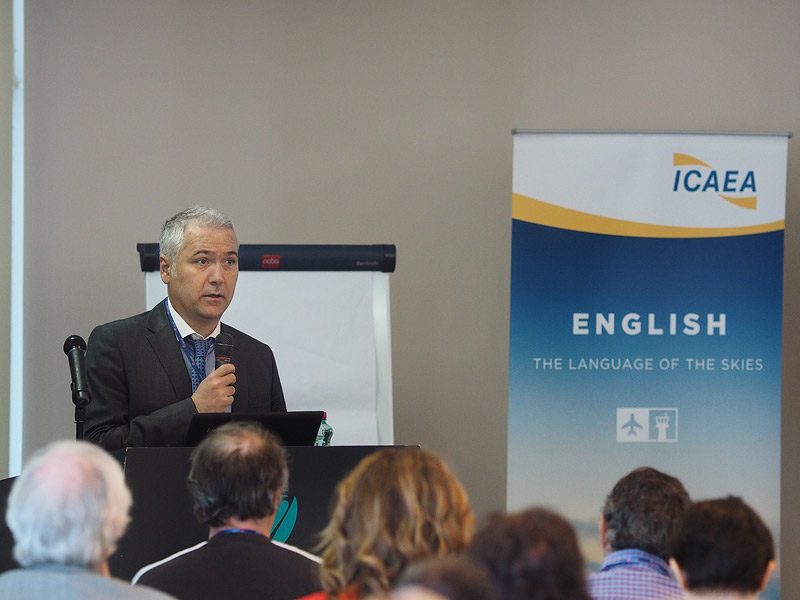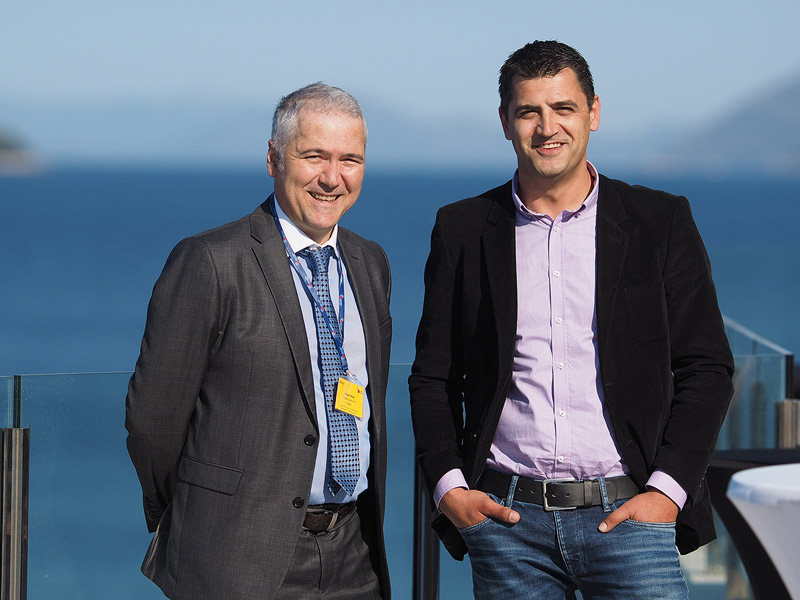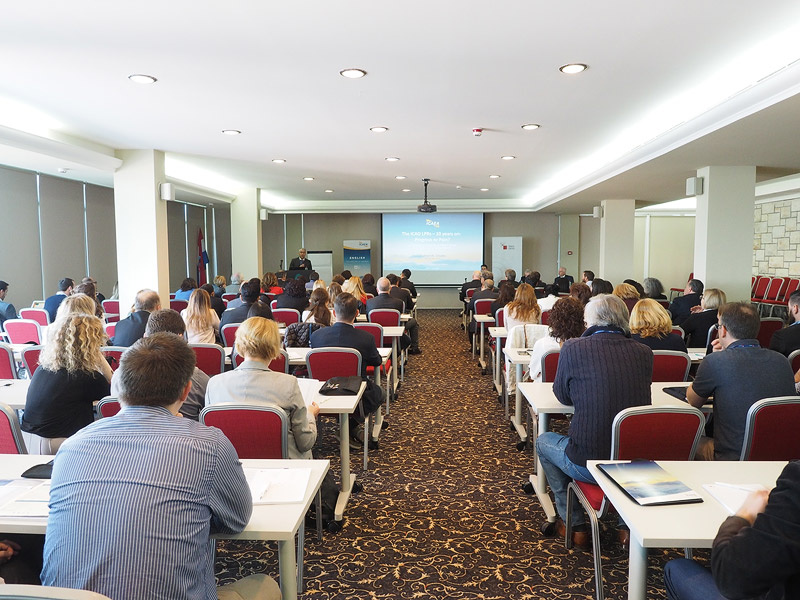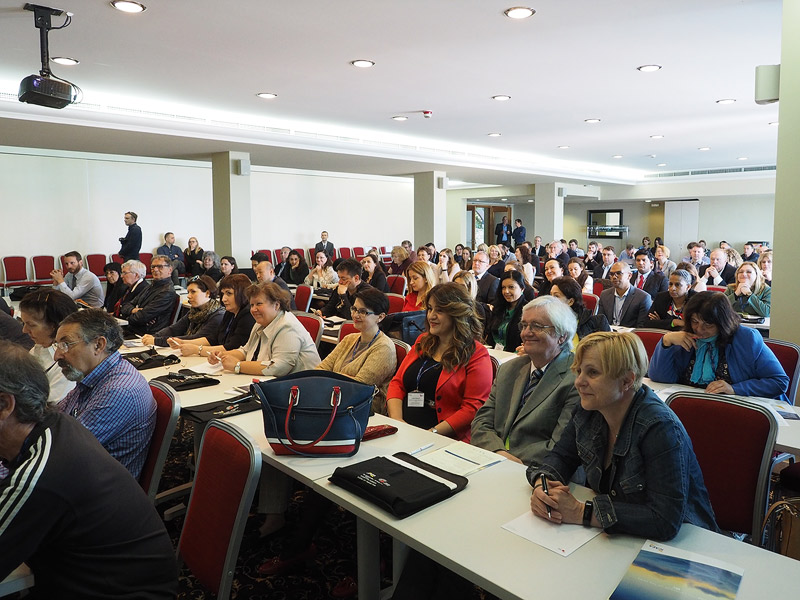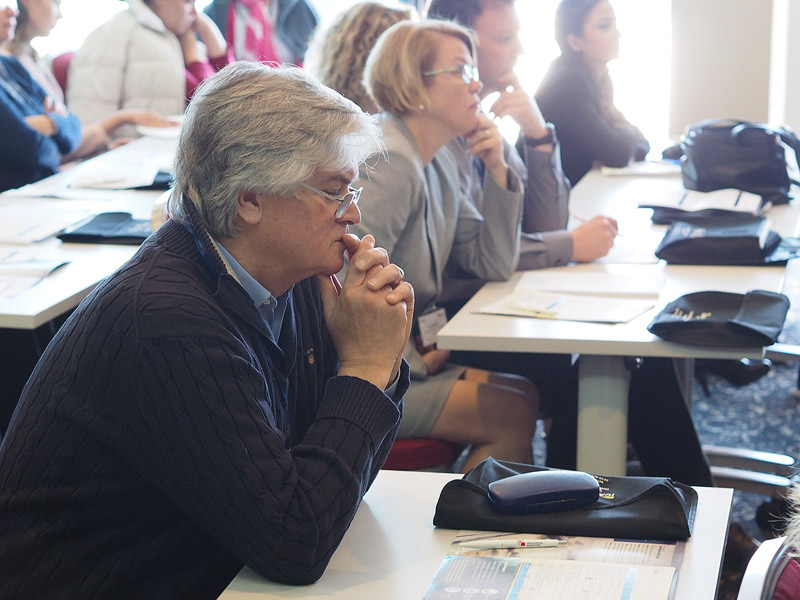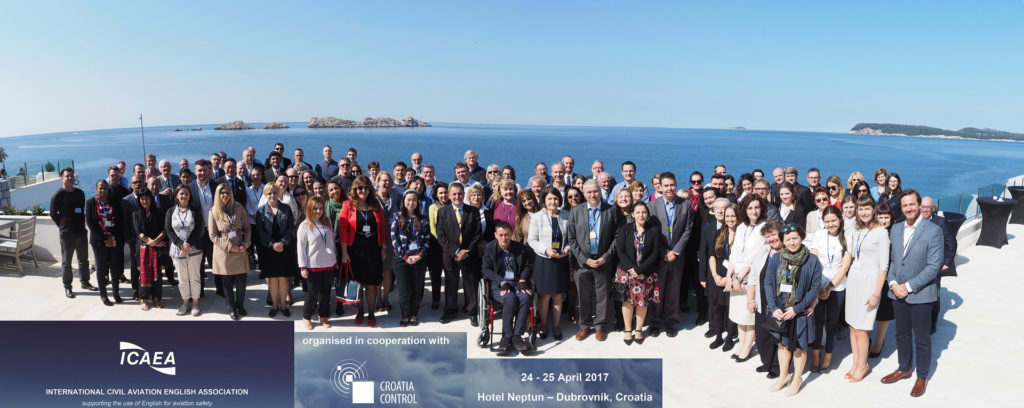The 30th ICAEA conference, jointly organised by ICAEA (International Civil Aviation English Association) and Croatia Control Ltd, took place in Dubrovnik on 24 and 25 April 2017. A hundred and fifteen delegates from all continents attended the conference, which is the highest attendance so far.
Mr. Dragan Bilać, Director General of Croatia Control Ltd, held an opening speech, and the President and Vice-President of ICAEA, Mr. Michael Kay and Mr. Terence Gerighty welcomed the participants on behalf of ICAEA.
ICAEA is a non-profit association founded in 1984 that gathers over 350 members from more than 75 states, and works to:
- improve standards and understanding of the role of English as used by all aviation professions: by pilots and air traffic controllers in air-to-ground communications, by multi-national crews on the flight deck and in the cabin, by maintenance personnel, ground staff and aviation training organisations,
- raise awareness of the role of English in aviation safety, service quality and efficiency: by connecting operational and language experts, and by providing a forum for the exchange of knowledge, experience and regional news,
- encourage the adoption and development of best practices in the training and testing of Aviation English: by supporting the development of guidelines and tools that promote harmonised standards, and by providing a meeting point for operators, regulators, industry bodies, academic and the language training and testing communities.
The event theme was: “The ICAO LPRs – 10 years on: Progress or Pain?” – An exploration of what has and hasn’t worked since the introduction of the ICAO LPRs
More than a decade after the ICAO Language Proficiency Requirements (LPRs) were announced in 2005, most international pilots and controllers have been through at least two testing cycles.
So, what have we learned? At 12 workshops the delegates further discussed how different approaches to LPRs testing have affected:
- language training and the effectiveness of teaching and learning,
- effectiveness of aviation communications,
- perceptions of English language proficiency and its effect on aviation safety,
- individuals’ attitudes towards the use of English in their jobs.
The conclusion was that, more than 10 years after the introduction of ICAO LPRs, we can never stop trying to ensure language proficiency and effective communication of all stakeholders in aviation, as it is a factor contributing to safety and an ongoing process.
